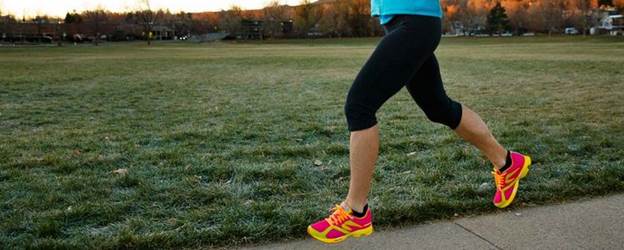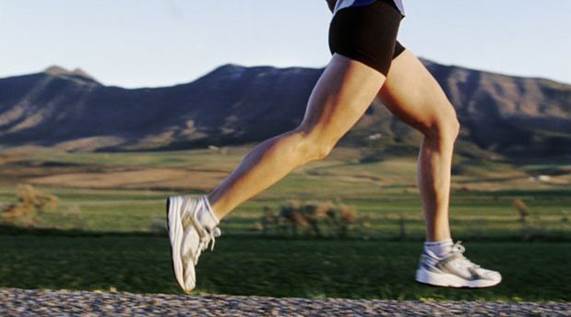‘I keep getting injured’
Firstly, don’t stop exercising completely. Find something
else you can do without pain – cycle, swim, box, jump on a cross trainer. You
need to keep your endorphins and fitness up so that you’re not tempted to run
on an injury and make it worse. Then go to see a medical practitioner. The
sooner you do that, the sooner (hopefully) you’ll be back in action. It can
also be helpful to find a trainer who specializes in running to look at your
gait, or join a site such as coolrunning.com.au, where you’ll find thousands of
runners happy to share details of their injuries and how they dealt with them.

Find something
else you can do without pain – cycle, swim, box, jump on a cross trainer.
‘I’ve got kids to care for’
Include them. They can follow you on their bikes or you can
play relay races where you effectively do interval training. It all counts.
When I train my clients, we include lots of games which involve frequent short
sprints like tag. It’s fun, plus the kids learn from your active lifestyle.
‘I always need to move my bowels when I’m injuring’
According to a review published in the International
SportsMed Journal, up to 71 per cent of runners experience this problem. It’s
caused by the up and down motion of running combined with the body’s
temperature increase. Try to get the bowels moving before you run, find running
routes with plenty of pit stops, and keep a food diary to see if some foods
exacerbate the problem.
‘I have a leaky bladder’
This is another common problem that affects more than 50 per
cent of women at some stage. If your incontinence is only really brought on by
running, good fitness. coughing or sneezing, it’s most likely stress
incontinence, which can usually be fixed with pelvic floor exercises. You do
need to do these daily, however, and don’t expect an improvement for a few
months.

You do need to do
these daily, however, and don’t expect an improvement for a few months.
‘I keep getting a stitch’
This could be caused by the way you breathe, or your diet.
Slow down and breathe more deeply, exhaling through pursed lips. Don’t eat or
drink too much before you run. Avoid greasy fry-ups generally – a fatty meal
can cause stomach problems when you run even 24 hours after eating it.
‘I suffer chafing’
This is generally caused by ill-fitting clothes, scratchy
fabrics or excess weight. Smear affected areas with Vaseline or pawpaw
ointment.
‘My muscles keep cramping’
This could be due to a poor warm-up, over-exertion or
dehydration. If you think it’s either of the first two, then stop, stretch it
out and give the affected area a massage – and start more slowly next time. If
you think it’s dehydration, try electrolyte drinks. Magnesium supplements can
also be useful.

This could be due
to a poor warm-up, over-exertion or dehydration.
‘I can’t afford running shoes’
Keep an eye out for outlet stores and sales. Check out the
Cathy Freeman Dunlop range, available from Kmart and Big W stores at $59.95.
And if you live near a beach or park, try the occasional barefoot session.
Progress with barefoot running super slowly though. The muscles and bones in
the feet and ankles need time to adjust.